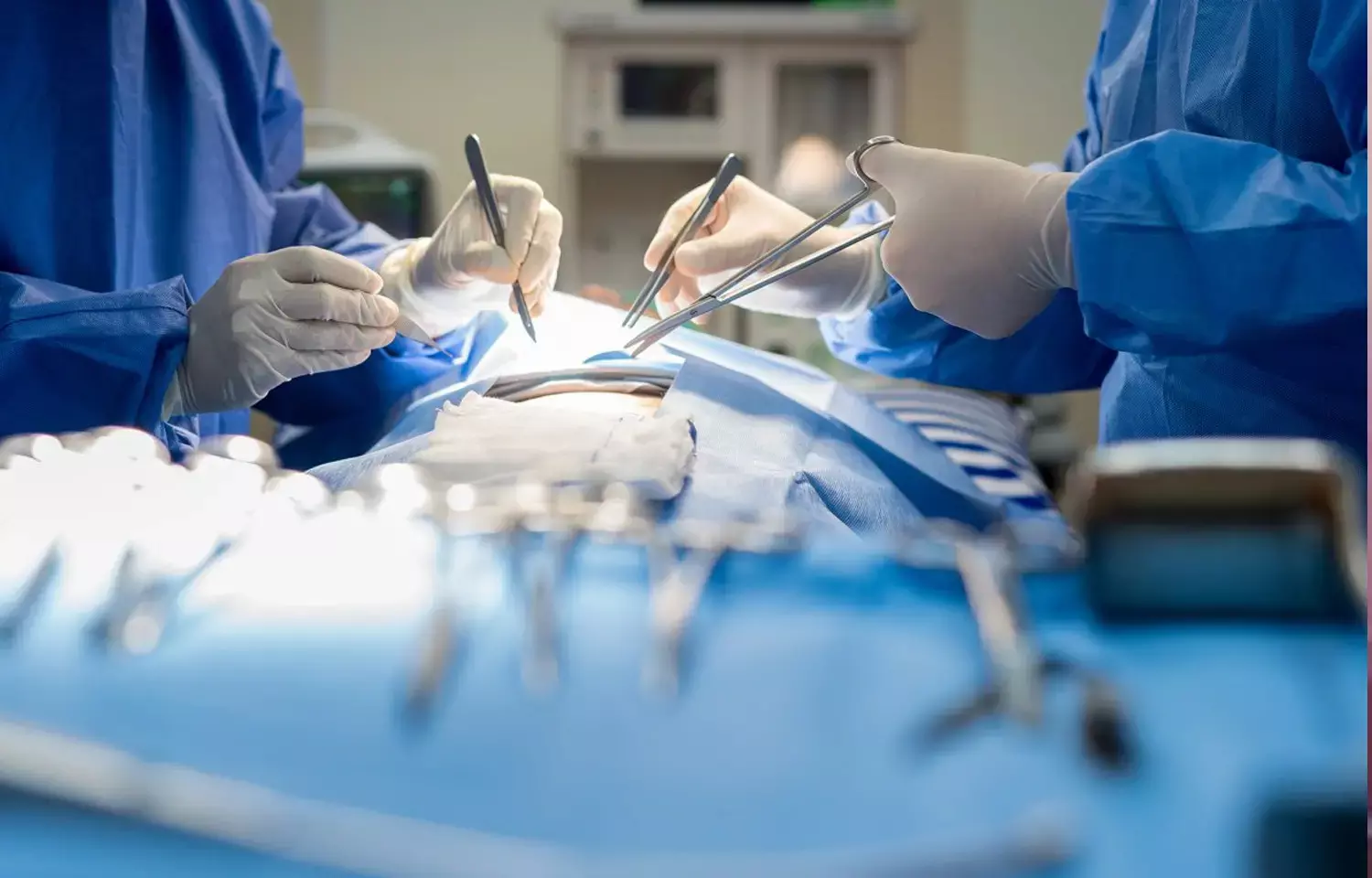- Home
- Medical news & Guidelines
- Anesthesiology
- Cardiology and CTVS
- Critical Care
- Dentistry
- Dermatology
- Diabetes and Endocrinology
- ENT
- Gastroenterology
- Medicine
- Nephrology
- Neurology
- Obstretics-Gynaecology
- Oncology
- Ophthalmology
- Orthopaedics
- Pediatrics-Neonatology
- Psychiatry
- Pulmonology
- Radiology
- Surgery
- Urology
- Laboratory Medicine
- Diet
- Nursing
- Paramedical
- Physiotherapy
- Health news
- Fact Check
- Bone Health Fact Check
- Brain Health Fact Check
- Cancer Related Fact Check
- Child Care Fact Check
- Dental and oral health fact check
- Diabetes and metabolic health fact check
- Diet and Nutrition Fact Check
- Eye and ENT Care Fact Check
- Fitness fact check
- Gut health fact check
- Heart health fact check
- Kidney health fact check
- Medical education fact check
- Men's health fact check
- Respiratory fact check
- Skin and hair care fact check
- Vaccine and Immunization fact check
- Women's health fact check
- AYUSH
- State News
- Andaman and Nicobar Islands
- Andhra Pradesh
- Arunachal Pradesh
- Assam
- Bihar
- Chandigarh
- Chattisgarh
- Dadra and Nagar Haveli
- Daman and Diu
- Delhi
- Goa
- Gujarat
- Haryana
- Himachal Pradesh
- Jammu & Kashmir
- Jharkhand
- Karnataka
- Kerala
- Ladakh
- Lakshadweep
- Madhya Pradesh
- Maharashtra
- Manipur
- Meghalaya
- Mizoram
- Nagaland
- Odisha
- Puducherry
- Punjab
- Rajasthan
- Sikkim
- Tamil Nadu
- Telangana
- Tripura
- Uttar Pradesh
- Uttrakhand
- West Bengal
- Medical Education
- Industry
Cold ischemia device consistently maintains low graft temperature during renal transplantation

Spain: In a new study it was found that in both robotic-assisted kidney transplant (RAKT) and open kidney transplant (OKT), the cold ischemia device (CID) ensured a consistent low graft T° during the rewarming time. The findings of this study were published in the journal European Urology.
Kidney transplantation (KT) is the most effective renal replacement therapy. The rewarming time is related to the amount of ischemia/reperfusion damage. Ice slush is utilized to keep graft temperature (T°) below 20 °C in both the OKT and RAKT techniques. This may result in nonhomogeneous graft T° maintenance, which raises concerns for systemic hypothermia, particularly during RAKT where the graft is fully inside the abdominal cavity.
Angelo Territo and the team conducted this study with the objective to create a cold ischemia device (CID) that keeps the graft T° constant and uniform during surgery.
During IDEAL phase 0, a CID was designed and tested to establish its cooling impact on the kidney inside a closed system at 37.5 °C by comparing it to a gauze-jacket filled with ice slush against the kidney alone. The CID was tested in pigs undergoing OKT and RAKT to determine its feasibility and adverse effects. During the first phase of IDEAL, the CID was evaluated in human OKT and RAKT. This research included participants who had undergone OKT and RAKT. T° was measured at predetermined intervals during all phases.
The results of this study stated as follow:
1. In IDEAL phase 0 early tests, the CID was able to maintain a low graft T° and outperform other groups.
2. The CID maintained a low and stable graft T° in OKT (n = 3) and RAKT (n = 3), with a mean T° at 50 min of 10.8 °C and 14.9 °C, respectively.
3. IDEAL phase 1 established the viability of both techniques (OKT, n = 2, and RAKT, n = 3) utilizing the CID, with graft T° never exceeding 20 °C (mean T°: OKT 15.7 °C versus RAKT 18.3 °C).
4. There were no issues noted. The biggest restriction is the small number of participants.
In conclusion, A cold ischemia device is an important step towards developing a viable, safe, and repeatable mechanism for keeping the graft temperature low during surgery. The use of a CID may improve functional results.
Reference:
Territo A, Piana A, Fontana M, Diana P, Gallioli A, Gaya JM, Huguet J, Gavrilov P, Rodríguez-Faba Ó, Facundo C, Guirado L, Palou J, Mottrie A, Breda A. Step-by-step Development of a Cold Ischemia Device for Open and Robotic-assisted Renal Transplantation. Eur Urol. 2021 Dec;80(6):738-745. doi:10.1016/j.eururo.2021.05.026. Epub 2021 May 28. PMID: 34059396.
Medical Dialogues consists of a team of passionate medical/scientific writers, led by doctors and healthcare researchers. Our team efforts to bring you updated and timely news about the important happenings of the medical and healthcare sector. Our editorial team can be reached at editorial@medicaldialogues.in.
Dr Kamal Kant Kohli-MBBS, DTCD- a chest specialist with more than 30 years of practice and a flair for writing clinical articles, Dr Kamal Kant Kohli joined Medical Dialogues as a Chief Editor of Medical News. Besides writing articles, as an editor, he proofreads and verifies all the medical content published on Medical Dialogues including those coming from journals, studies,medical conferences,guidelines etc. Email: drkohli@medicaldialogues.in. Contact no. 011-43720751


